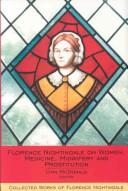| Listing 1 - 3 of 3 |
Sort by
|
Book
Year: 1944 Publisher: London : William Collins of London,
Abstract | Keywords | Export | Availability | Bookmark
 Loading...
Loading...Choose an application
- Reference Manager
- EndNote
- RefWorks (Direct export to RefWorks)
War --- Croix-Rouge. --- Rode Kruis. --- Relief of sick and wounded. --- British Red Cross Society. --- British Red Cross Society --- Relief of sick and wounded
Book
ISBN: 1399067028 Year: 2022 Publisher: Barnsley, England : Pen & Sword History,
Abstract | Keywords | Export | Availability | Bookmark
 Loading...
Loading...Choose an application
- Reference Manager
- EndNote
- RefWorks (Direct export to RefWorks)
Sir Nick Young's memoir is a fascinating and candid account of his thirteen years as chief executive of the British Red Cross (2001-2014). During this critical period he led the organization's response to the financial crisis, the Iraq War, the Asian Tsunami, the London bombings, a kidnapping, the fighting in Syria, media challenges, and numerous earthquakes, floods and other disasters.The author shares the strains and moments of fulfillment, relief and humor, as he played a key role in the response to some of the 21st Century's most dramatic and dangerous events. His book paints a vivid yet modest picture of what is involved running one of the world's best-known disaster response organizations, reacting to catastrophes, both man-made and natural, and saving the lives and livelihoods of those caught up in global disasters, conflicts and health emergencies.It is rare for charity leaders to reveal their insights in this way and, at the same time, paint such a vivid picture of life at the top of a large voluntary organization. The result is a compelling read, particularly for those interested in international affairs, the way charities work, and what makes them different from other types of world class organizations.
Personal memoirs --- Biography & autobiography --- War --- Relief of sick and wounded. --- Young, Nicholas, --- British Red Cross Society.

ISBN: 1282232908 9786613810649 1554583829 9781554583829 9780889204706 0889204705 9781282232907 9781554583836 1554583837 Year: 2011 Publisher: Waterloo, Ont. : Wilfrid Laurier University Press,
Abstract | Keywords | Export | Availability | Bookmark
 Loading...
Loading...Choose an application
- Reference Manager
- EndNote
- RefWorks (Direct export to RefWorks)
Volume 15 of the Collected Works of Florence Nightingale, Wars and the War Office, picks up on the previous volume's recounting of Nightingale's famous work during the Crimean War and the comprehensive analysis she did on its high death rates. This volume moves on to the implementation of the recommendations that emerged from that research and to her work to reduce deaths in the next wars, beginning with the American Civil War. Nightingale's writings describe the creation of the Army Medical School, the vast improvements made in the statistical tracking of disease, and new measures for soldiers' welfare. Her role in the formulation of the first Geneva Convention in 1864 is related, along with her concern that voluntary relief efforts through the Red Cross not make war "cheap." Nightingale was decorated by both sides for her work in the Franco-Prussian War. While much of her work concerned the mundane sending out of supplies, we see also in her writing her emerging interest in militarism as the cause of war. Her opposition to the Afghan War (of her time) and her work to provide nursing for the Egyptian campaigns, the Zulu War, and the start of the Boer War are also included.
Soldiers --- Military hospitals --- Military nursing --- Armed Forces personnel --- Members of the Armed Forces --- Military personnel --- Military service members --- Service members --- Servicemen, Military --- Armed Forces --- Combat support hospitals --- Field hospitals --- Hospital service (War) --- Hospitals, Military --- Public hospitals --- Medicine, Military --- Nursing --- Health and hygiene --- History --- Nightingale, Florence, --- フローレンスナイチンゲール, --- British Red Cross Society --- British Red Cross --- Central British Red Cross Committee --- Central British Red Cross Council --- Red Cross (Great Britain) --- Red Cross. --- National Aid Society --- Croce Rossa Britannica
| Listing 1 - 3 of 3 |
Sort by
|

 Search
Search Feedback
Feedback About UniCat
About UniCat  Help
Help News
News